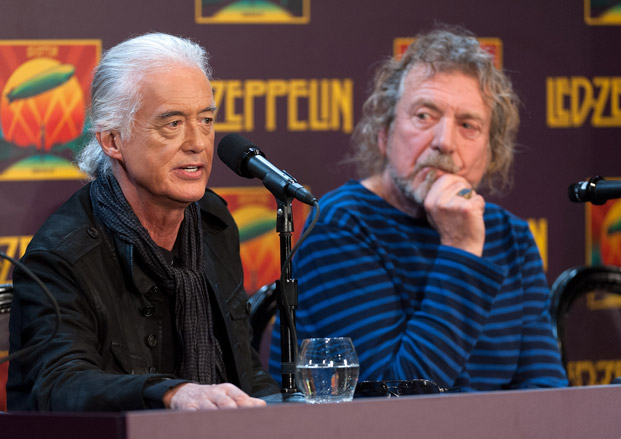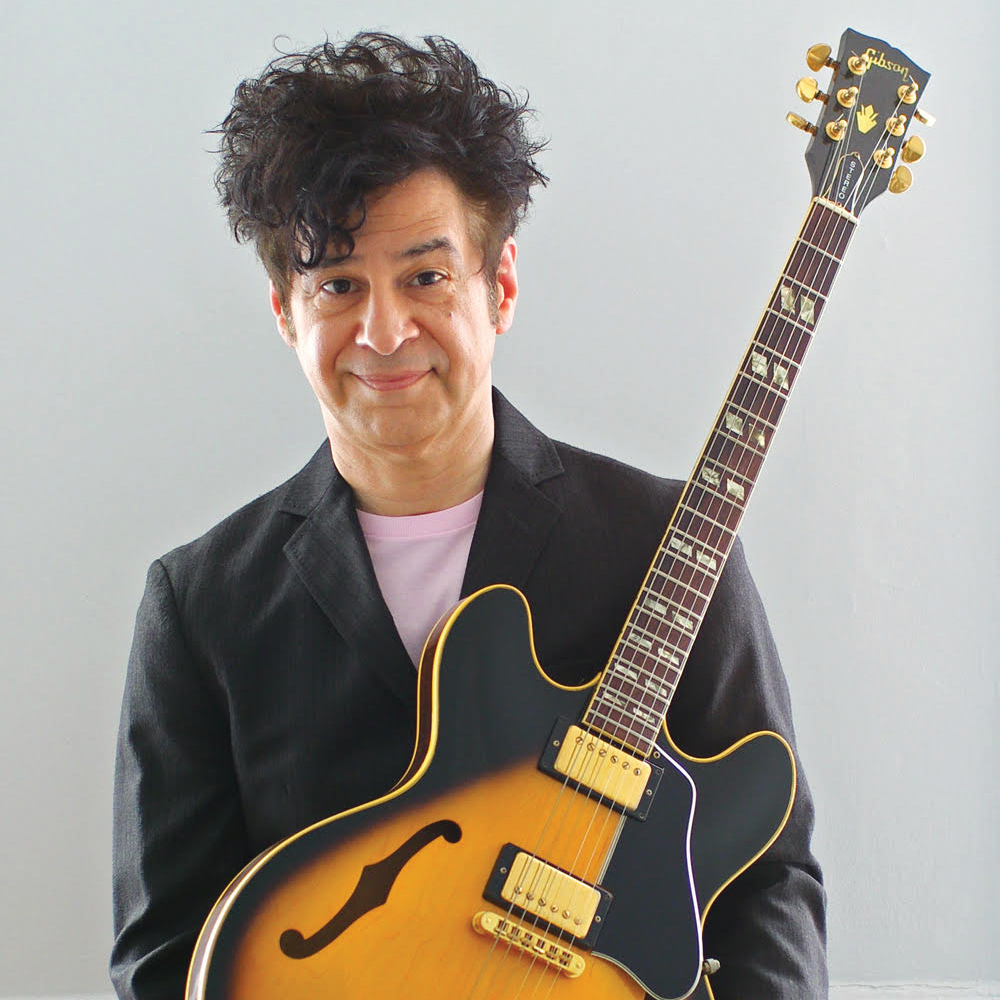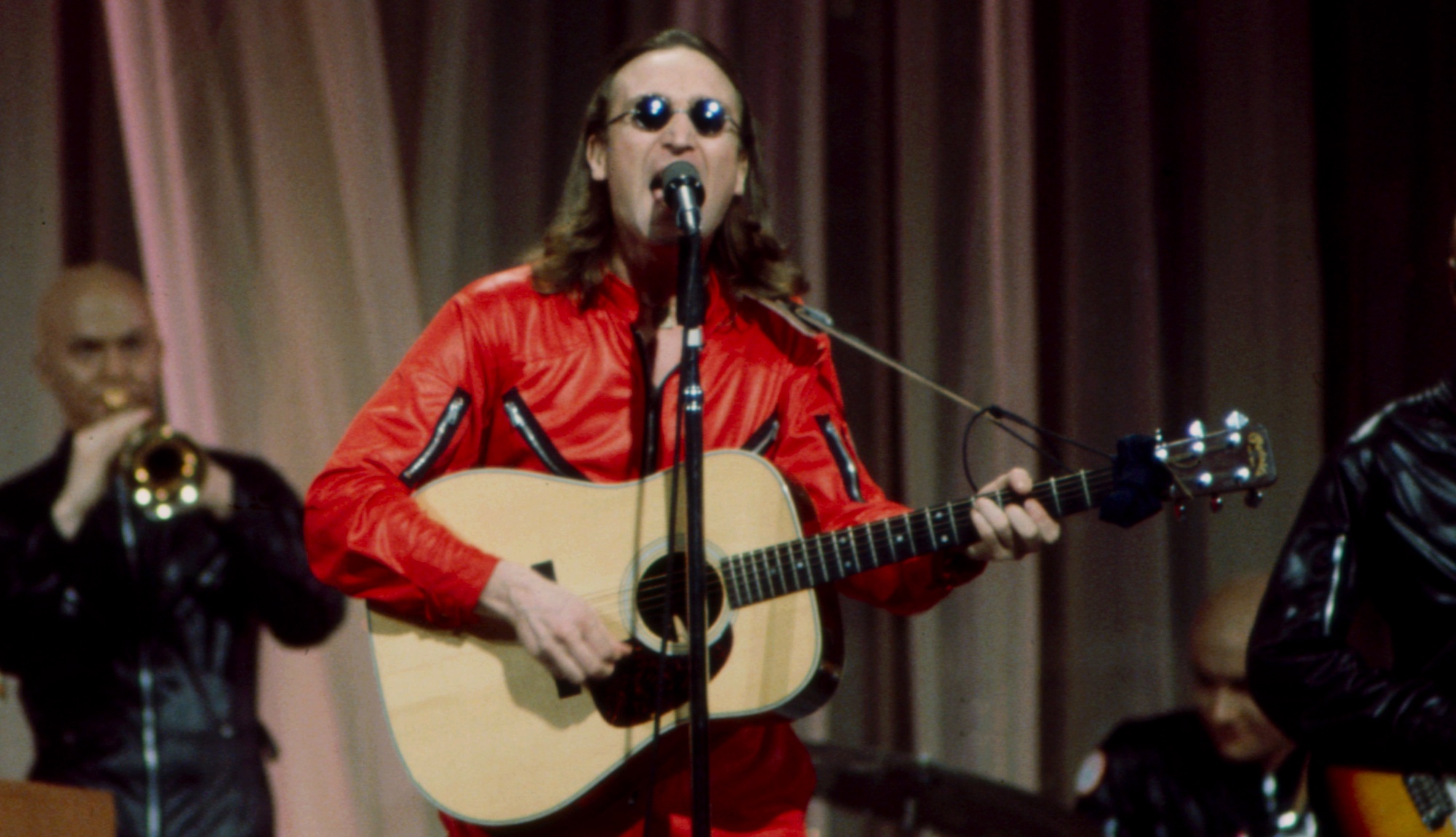Robert Plant Testifies About Writing “Stairway to Heaven”: “Jimmy Page and I Sat by the Fire”
All the latest guitar news, interviews, lessons, reviews, deals and more, direct to your inbox!
You are now subscribed
Your newsletter sign-up was successful

Like the final scene in a mystery where all is revealed, Robert Plant provided some of the most illuminating testimony yet in the plagiarism trial over Led Zeppelin’s “Stairway to Heaven.”
The singer took the stand Tuesday, June 21, at the Edward R. Roybal Federal Building and United States Courthouse in Los Angeles, becoming the last surviving member of Led Zeppelin to testify in the trial to determine whether the band plagiarized the 1968 Spirit song “Taurus.”
But unlike his bandmates Jimmy Page and John Paul Jones, Plant was unguarded in his testimony and generous with his recollections, offering insights into the making of “Stairway to Heaven” and Led Zeppelin’s incorporation of another Spirit song into a live medley in their early sets.
Plant recalled for the court how he and Page had worked on “Stairway to Heaven” at Headley Grange, a former poorhouse in Hampshire, England where the band rehearsed and recorded some of their early tracks. His testimony provided a glimpse into the early stages of the song, when Page first played for him its opening passage, a descending arpeggiated chromatic line that the plaintiff, Michael Skidmore, believes is copied from “Taurus.”
“One evening, Jimmy Page and I sat by the fire going over bits and pieces,” Plant said, explaining that he would go off alone to his room with a notepad to develop the melody and lyrics. He testified that he had been working on a couplet of “the natural, old, almost unspoken” culture of the Welsh countryside. “It seemed like a good fit for the song,” he said.
Lead defense attorney Peter Anderson asked him if he recalled the couplet.
“There’s a lady who’s sure all that glitters is gold and she’s buying a stairway to heaven,” Plant replied, alternately talking and singing the lyrics. “When she gets there she knows if the stores are all closed, with a word she can get what she came for.”
All the latest guitar news, interviews, lessons, reviews, deals and more, direct to your inbox!
With that, he said, the rest of the lyrics started “rolling pretty fast.”
Plant’s recollections are one piece of the puzzle about the song’s origins. The testimony of bassist John Paul Jones is another. On Monday, Jones testified that he misspoke years ago in a BBC interview when he recalled how “Stairway to Heaven” came about. In that 1972 interview, Jones was recorded saying, “We were all in the country at Headley Grange when [Page and Plant] came back from the Welsh mountains with a guitar intro, verse and maybe more [of ‘Stairway to Heaven’].” That story has been repeated in the media throughout the decades, leading fans to believe “Stairway to Heaven” was already underway when Led Zeppelin convened at Headley Grange.
On Friday, June 17, Jones said his recollection had been incorrect, echoing Jimmy Page’s own testimony from days before. “It sounded like I was guessing,” Jones said on the stand after the recording was played for him. “I was guessing.”
Plant also provided some useful explanations of how Led Zeppelin had come to include the guitar riff from Spirit’s 1968 song “Fresh-Garbage” in a medley they performed regularly during their 1969 tour. “Fresh-Garbage” is the first track on Spirit’s debut album, which also includes “Taurus.”
He said the band learned the song not from Spirit’s album but from a 1968 Columbia Records compilation, which he had discovered and brought to Led Zeppelin. (Spirit recorded at the time for Ode Records, which was distributed by Columbia/CBS from 1967 to 1969.) That album was most likely The Rock Machine Turns You On, a bargain-priced sampler album released in numerous countries, including the U.S. and U.K.
Plant testified that he wasn’t familiar with other Spirit songs, including “Taurus.” “I didn’t remember it then, and I don’t remember it now,” he told the court, according to Rolling Stone.
He also testified that he did not recall ever seeing Spirit perform. Though the two bands had shared several concert dates, none of the surviving Led Zeppelin members say they ever watched Spirit’s shows. In previous testimony, Spirit’s Mark Andes said Plant had attended a Spirit concert in Birmingham, England, in January 1969. Driving home from the show, Plant’s Jaguar collided with a mini van, leaving him with a lacerated face and broken teeth. He said the accident may in part account for his inability to recall the evening.
“I don’t have a recollection of mostly anyone I’ve hung out with,” Plant said, according to the Hollywood Reporter, causing the courtroom to burst into laughter.
The trial, which began on June 14, may be winding down. Judge Gary Klausner said he expects the case to go to the jury on Wednesday, June 21.
Christopher Scapelliti is editor-in-chief of Guitar Player magazine, the world’s longest-running guitar magazine, founded in 1967. In his extensive career, he has authored in-depth interviews with such guitarists as Pete Townshend, Slash, Billy Corgan, Jack White, Elvis Costello and Todd Rundgren, and audio professionals including Beatles engineers Geoff Emerick and Ken Scott. He is the co-author of Guitar Aficionado: The Collections: The Most Famous, Rare, and Valuable Guitars in the World, a founding editor of Guitar Aficionado magazine, and a former editor with Guitar World, Guitar for the Practicing Musician and Maximum Guitar. Apart from guitars, he maintains a collection of more than 30 vintage analog synthesizers.

